“Crazy Rich Asians”-Why It Matters and How Taking Risks and Using Your Voice Makes A Difference

If you haven’t already heard about the new film “Crazy Rich Asians”, it’s the #1 movie at the box office with a $35M debut last weekend and was so successful a sequel is already in the works. The romantic comedy based on Kevin Kwan’s international best seller is the first Hollywood studio film to feature an all-Westernized Asian cast since the Joy Luck Club 25 years ago.
Romantic Comedy or Movement?
On the surface it’s just a movie, a fun, entertaining, beautifully shot romantic comedy, but for many Asian and Asian Americans it goes much deeper. I saw it on opening night. Walking into the theatre I wasn’t sure what to expect, but I was excited. “Would it live up to the hype?” “Can you really put that much pressure on one film?” It was a moment where I knew something was about to shift. I didn’t know exactly how, but I knew it would never be the same again.
Seeing such multi-dimensional characters who are not typical Asian stereotypes or cliches on screen was amazing. It was an emotional moment that had me tearing and smiling at the same time. It’s difficult to verbalize, but it’s like I didn’t realize there was a void, until you see yourself being reflected back at you and then you realize what you’ve been missing all along. While this is my experience as an Asian American, I feel universally we all want to be seen and heard. That’s why it’s important to continue to share our stories and for us to be open to new voices and experiences. Hollywood just gives a larger platform.
Breaking Through Barriers and The Gift To Dream
I’m very proud of who I am as a Chinese American and what I stand for now, but when I was young, I always wanted to be less Asian and more “American” (whatever that means). Even though I grew up in California, my neighborhood was predominately white, my dolls were blond, and so were my friends. Whether it was conscious or unconscious I just wanted to be like everyone else and fit in. When I was little there wasn’t much diversity in media. The only Asian person I ever saw on TV was newscaster Connie Chung. That’s probably why I went into TV News. Seeing her gave me the gift to dream and to see myself where I didn’t know there was a possibility. I didn’t go into TV to be famous I wanted to have a voice and to have an impact.
As I grew up I didn’t let these barriers hold me back, I broke through layer by layer, but it wasn’t always easy. Now as mom and an entrepreneur I continue to break through new ones everyday.
The Power Of Media
As I often mention in my diversity keynotes, I believe it’s not just society’s barriers that ultimately hold us back, it’s our own. But the media has an impact on what we believe is possible and it has the power to shape our collective experience. It’s important for all of us to pay attention to stereotypes and cliches and how simple nuances in how groups are portrayed can affect public perceptions and reinforce stereotypes not only in society, but in ourselves. It’s important for those of us that consume content, but especially for those that create it.
Sharing Your Voice
I remember when I was 22 years old. I was working at Paramount Pictures in Hollywood. My boyfriend at the time was an up and coming studio executive. We were watching the opening scene of a new film when an Asian character popped up on the screen. The character was a waiter with an accent and said 2 lines to the main character. I waited to see if there was more. Did this relate to the plot? Why did the waiter have to be Asian? And why did he have to have an accent? No reason. The writer put an Asian guy with an accent in the movie just because. Maybe he thought it was funny. Most people don’t notice things like this because it just became acceptable. Not seeing diverse characters on screen is normal and when you do see them, seeing them with an accent is also accepted. Not all Asians have accents. I don’t.
The scene really bothered me and I said to my boyfriend, “Did you see that?” “See what?” he replied. “That the only Asian guy in the film was a waiter with an accent who had no relevance to the plot. It’s a stereotype and was unnecessary.
“It’s just a few lines it’s not a big deal”, he said. And there’s the problem my boyfriend who was a power player in Hollywood and shaping the stories being told, didn’t understand. It was my responsibility to speak up. But that’s why we need diversity in all areas. It’s not just about Asians or about movies. It’s about sharing our stories no matter what your background. It’s about taking a stand for what you believe in, taking risks and using your voice to have a bigger impact on the world.
Taking Risks and Letting Your Heart Lead
That’s why it’s not only the movie itself that moves me, but the story and passion behind “Crazy Rich Asians”. The creators put a lot of thought and care into this film from giving up a big pay day to creative casting to find an authentic fit for the characters to being mindful of specific cultural nuances to choosing the right music.
The filmmakers gave up a gigantic payday from Netflix to ensure it would be seen in theaters. They wanted the “biggest stage for the biggest stakes” and it paid off. Here’s the backstory.
Director John Chu also wrote a heartfelt personal letter to Coldplay to convince them to let them use the song “Yellow” after they had turned him down initially. “The color…always had a negative connotation in my life,” Chu said, “until I heard your song.”Here’s the full letter.
There’s also scenes that are intrinsically Asian, like the pivotal Mahjong scene that have a profound symbolism, but it’s meaning is not explained in the film. Here’s an explainer. The director’s purpose “We didn’t want to give people an excuse to think of this world as some kind of obscure, exotic fantasyland — this is a real place, with real culture, history and tradition, and instead of just giving them answers to their questions, we want them to have conversations.”
And it’s these conversations that are important. Will one film reshape the entire Hollywood landscape and the cultural identity of Asians and Asian Americans? No, but it’s a start and with it’s financial success it opens the door for even more voices to be heard and that’s good for all of us.
Here's to you and your voice,








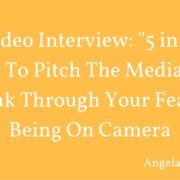
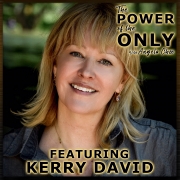
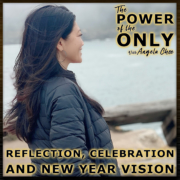
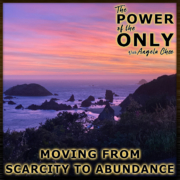
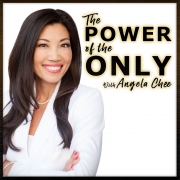
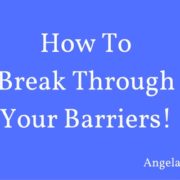


Leave a Reply
Want to join the discussion?Feel free to contribute!